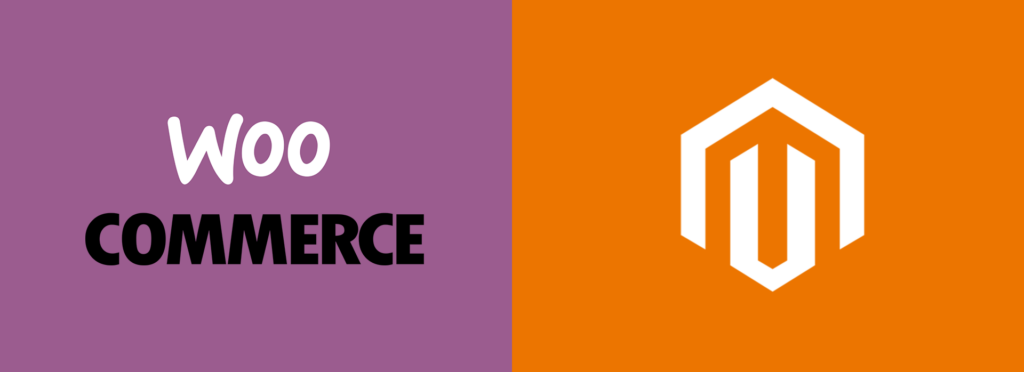
Over the past few years, we’ve observed eCommerce grow and consolidate itself as a new alternative to traditional market practices. All retail giants have their own online store or are online based, while a huge portion of new businesses are choosing to operate completely over the internet, either by creating their own store-front or using social media. Because of this, it is no surprise that new products for online shop owners are being developed every day, two of the biggest names being WooCommerce and Magento.
This article will go over both solutions and their features, to aid you in choosing whichever option is right for you.
WooCommerce
With over 400,000 users, this WordPress plugin is probably the most popular eCommerce portal out there. It offers everything you need to run your online business, as well as many more advanced features available through their extension system. Because it is integrated with WordPress, you can expect the same ease-of-use and resources, as it is compatible with a bunch of plugins and themes.
Features
- Supports an unlimited number of products.
- Easy integration with WordPress websites.
- Comes with a robust extension system, based on the WordPress plugin format.
- Enables you to pick almost any payment processors you want using extensions.
- Offers dozens of premium and free themes.
Pricing
WooCommerce is an open-source platform, meaning anyone can download and set it up for free. However, you’d still need to cover the costs of hosting your own website, and the price will depend on the size and needs of your store. You will also need to factor in any additional costs related to premium extensions or features.
Magento
Magento is an ecommerce platform built on open source technology which provides online merchants with a flexible shopping cart system, as well as control over the look, content and functionality of their online store. Magento offers powerful marketing, search engine optimization, and catalog-management tools.
Features
- Supports an unlimited number of products, as any respecting self-hosted platform should!
- Comes with its own theming and layout system.
- Includes efficient APIs that can connect with any third-party solution.
- Intuitive admin interfaces and product creation tools.
Pricing
Magento’s Community Edition is open-source and free for anyone to use, so you just need to cover the costs associated with your hosting plan. On the other hand, users who are interested in the Enterprise Edition of Magento will have to pay a couple thousands.
What about security?
Both platforms enable you to implement advanced security measures, but mostly through extensions and manual tweaks. And while no platform can be 100% secure, Magento takes the lead in this aspect by offering dedicated security patches to its users. The downside here is that those security patches aren’t particularly easy to apply. E-commerce newbies might feel out of their depth doing so on their own, which in turn leads to a significant amount of Magento stores being out of date.
Nevertheless, if you take security seriously and you have some experience with web development (or a willing to pay someone who is), Magento is the obvious winner in this aspect.
Beginner-friendly?
If you’re just starting out in the eCommerce world, it is normal to feel overwhelmed by the amount of resources and information out there. If you’re unsure of where to begin or which platform to choose based on your level of experience, then WooCommerce is the best option for you. Not only is it easier to use, you will get accustomed to WordPress, the most popular CMS out there right now. This will undeniably be of great help to you, for there is a huge community out there, willing to help you with any questions you may have.
Not to say Magento isn’t beginner friendly, but it definitely takes more time and effort to master. There is also extensive documentation you can resort to if you have any doubts related to the use of the platform.
Conclusion
All stores and owners are different, and what works for most may not work for you. Make sure to choose your eCommerce platform based on your specific needs and long-term ambitions, not all platforms are well equipped for scalability . If neither WooCommerce nor Magento feel like they’re quite right for you, you can always look for other alternatives.
